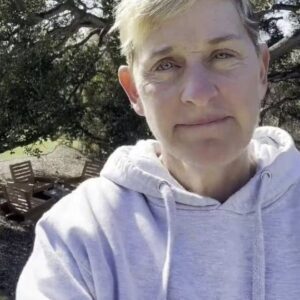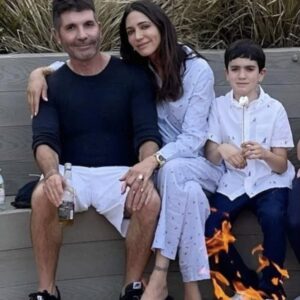Family secrets have a way of emerging when you least expect them, often unraveling everything you believed to be true. What began as a simple question from my granddaughter Lindsey about her curly blonde hair turned into a revelation that shook our entire family to its core.
There are stories that stay with you forever, and this is one of them. Lindsey is my beautiful granddaughter. I have three grandchildren living in different parts of the country, so I missed many of their milestones—birthdays, holidays, and those everyday moments that make life meaningful.
I still remember the first time I saw Lindsey at six months old. Something about her caught my attention immediately—her curly, blonde hair. It was unlike anyone else in our family, where dark hair was the norm.
At first, I shrugged it off. Genetics can be unpredictable—sometimes traits skip generations, or maybe a distant relative had similar hair. But as the years went by, I couldn’t ignore the feeling that something was off.
As Lindsey grew, her difference became more obvious. She didn’t resemble her siblings, and soon, she started asking questions herself.
“Grandma,” she would ask, “why don’t I look like Mom or Dad?” It broke my heart to see how much this troubled her. I tried to comfort her, explaining that families don’t always look alike and maybe she inherited her hair from a distant ancestor.
But it wasn’t just us who noticed. Lindsey told me how kids at school would ask why she looked different. “They say it’s weird that I’m the only blonde,” she confided one day, hurt by their teasing. “Some even joke that I’m adopted.”
This wasn’t just harmless teasing; it was affecting her deeply. “Why won’t Mom and Dad let me do a DNA test?” she asked me one afternoon, tears in her eyes. “What are they hiding?”
I didn’t have the answers. I’d wondered the same thing for years. My son and his wife always dismissed the topic, but now, seeing Lindsey’s pain, I felt compelled to help her find the truth. Yet I was powerless.
So, I reached out to my closest friends for advice. These women had witnessed all kinds of family struggles. After sharing my story over coffee, they encouraged me to pursue the truth.
Maggie, the voice of reason, asked, “Do you think they’re hiding something, or just protecting her?”
Sue, blunt as always, said, “If there’s nothing to hide, why refuse a DNA test? It’s no big deal these days.”
They made a good point. Lindsey was fifteen, and her curiosity wasn’t fading—it was growing. I made a difficult choice: I bought a DNA test for Lindsey without her parents knowing, even though I knew it could cause conflict. But I couldn’t stand watching her suffer in uncertainty.
Weeks later, the results came back, revealing more than I ever expected. Lindsey wasn’t biologically related to her mother. My son had fathered her with another woman years ago—a secret he’d kept hidden all this time.
The aftermath was immediate and painful. My son and his wife were furious I’d gone behind their backs, accusing me of tearing the family apart. But the real pain belonged to Lindsey, who had believed all her life that she was part of one family, only to discover her roots were elsewhere.
Worse still, Lindsey’s biological mother had tried to reconnect over the years, but my son had kept her away, hoping to keep the secret buried. Now, the past was catching up, and there was no stopping it.
Lindsey felt betrayed by everyone—her parents, her family, even me. She didn’t know who to trust anymore, and the closeness we once shared began to unravel.
Now, I wonder if I did the right thing. I wanted to help Lindsey find the truth, but maybe some secrets are better left undiscovered. Family secrets can turn your world upside down, and once revealed, there’s no going back.





